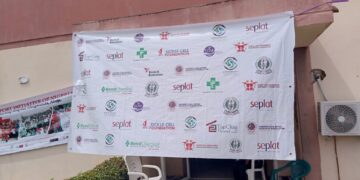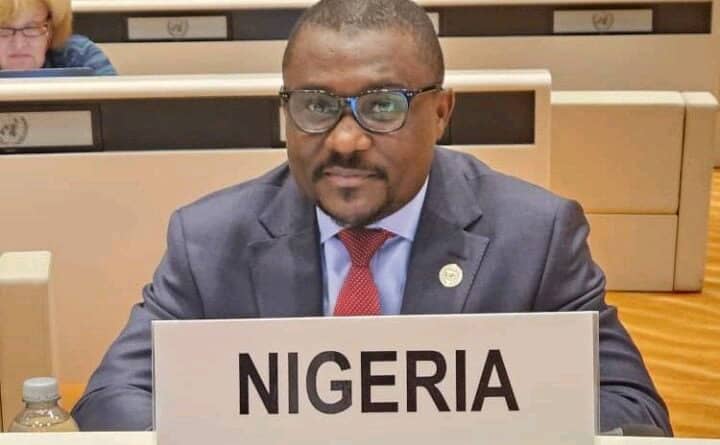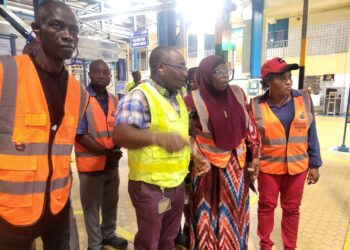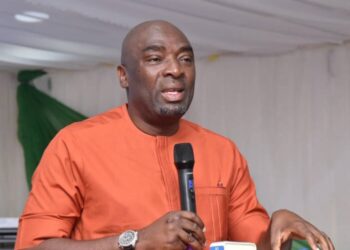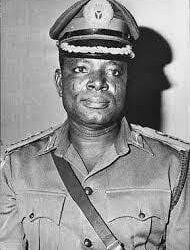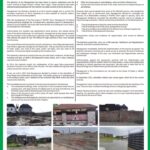The general assessment by the Financial Reporting Council FRC of the 2024 economic performance was novel and unique in all ramifications, particularly as it affected the economic indices and teething hardship across the country.
The initiatives of assessing the 2024 budget performance as it reflects the living standards of ordinary Nigerians has doused the haywire speculation of the high cost of living in the country.
The Rabiu Onaolapo Olowo led Financial Reporting Council FRC assessment of the 2024 budget was been corroborated by other organs of government like the National Board of Statistics NBS, the body charged with the reports on the activities of government using figures , facts among others, that recently announced the inflationary rate to have dropped from 40% to 30% , hence bringing down the cost of items, living and essential commodities.
With the assessment of Nigeria’s economy at hyperinflationary status and performance at average level that had little or no effect on people’s standard of living, in tandem with the current realities.
The global position been advanced by the Financial Reporting Council FRC, has justified the trend of the “International Accounting Standard 29 in their 2024 financial reports ” in line with both local and global realities.
This was without further delay buttressed by both government positions and market survey on the trend of sharp reduction announced by the federal government on the cost of food items and prices , while the populace also acknowledged similar stance from the falling food prices and direct experience from the . markets, hence justifying the theoretical and global standard been peddled by the Financial Reporting Council FRC under Dr Rabiu Onaolapo Olowo as the Chief Executive Officer, ES CEO.
The innovation had brought to a halt frequent speculations about the true positions of the economy of the country in comparison with the global standards and expectations.
The current normalcy embraced in the current reports of the 2024, is not only restricted to just one year , but could be sustained over three years running that will stabilize the inflationary position of the country and or 100 percent for 2025, 2026 and 2027 .
This was also attained with the activation of the new Dangote Refinery, reactivation of Warri and Port Harcourt Refineries, after many decades that will further contributed into reducing inflation and improve Nigeria’s economy performance.
The private sector driven economy inline the global requirements will improve oil production, agricultural revolution, import and structural rejuvenation, to support the positive development.
Olowo further asserted..
“The Financial Reporting Council (FRC) says Nigeria does not qualify as a hyperinflationary economy under existing standards.”
“In a statement on Wednesday, Rabiu Olowo, the FRC’s chief executive officer (CEO), said local companies will not apply the international accounting standard (IAS) 29 in their 2024 financial reports.”
“The IAS is a set of rules that guide financial reporting.”
“Olowo said the FRC assessed Nigeria’s economy against the five indicators in ‘IAS 29: Financial Reporting in Hyperinflationary Economies’ and decided the standard does not apply.”
“He explained that the IAS 29 establishes accounting requirements for hyperinflationary economies, identifying indicators such as reliance on non-monetary assets, pricing in stable currencies, and a cumulative three-year inflation rate nearing or exceeding 100 percent.”
“The CEO, who summarised the five IAS 29 indicators, said Nigeria does not meet most of the criteria.”
“The general population prefers to keep its wealth in non-monetary assets or in a relatively stable foreign currency,” he said.
“Amounts of local currency held are immediately invested to maintain purchasing power.”
“The general population regards monetary amounts not in terms of the local currency but in terms of a relatively stable foreign currency. Prices may be quoted in that currency.”
“Sales and purchases on credit take place at prices that compensate for the expected loss of purchasing power during the credit period, even if the period is short.”
“Interest rates, wages, and prices are linked to a price index.”
“However, Olowo said Nigeria meets the indicator for a cumulative inflation rate over three years approaching or exceeding 100 percent.”
“He said the operationalisation of the Dangote refinery and the Port Harcourt and Warri refineries would help to reduce inflation and improve Nigeria’s economic outlook.”
“The FRC said increased crude oil production, agricultural initiatives, import policies, and structural reforms would also support the positive trajectory. ”
“Olowo added that the FRC will monitor economic developments and update its position for the 2025 financial year, if necessary.”
Olowo’s new trend will continue to monitor both fiscal , economic for the new year , 2025 inline with the best practices .
Written BY ABUBAKAR YUSUF on yus.abubakar3@gmail.com.

